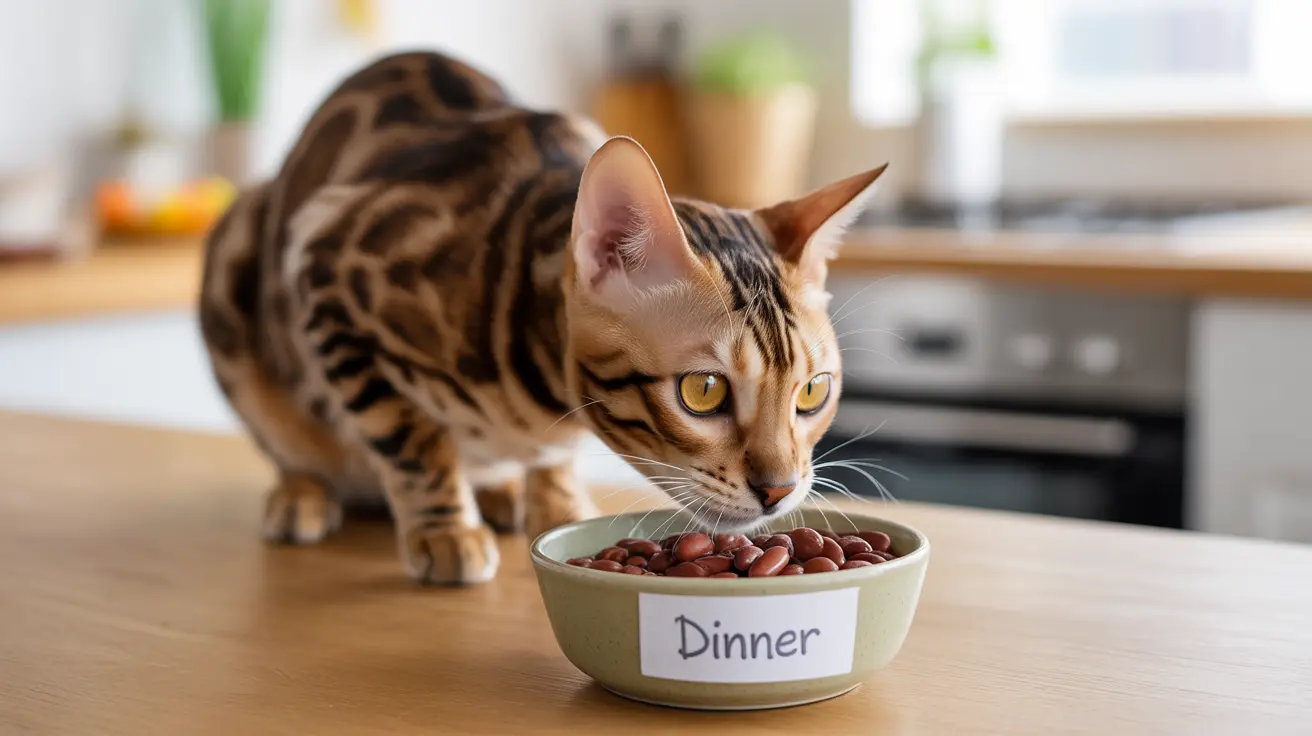As pet owners become more conscious about their cats' diets, questions often arise about sharing human foods with feline companions. Kidney beans, a staple in many human diets, have sparked particular interest among cat owners. But before you share these legumes with your furry friend, it's crucial to understand the facts about cats and kidney beans.
While cooked kidney beans aren't toxic to cats, their role in feline nutrition is complex and requires careful consideration. Let's explore everything you need to know about feeding kidney beans to cats, including safety concerns, nutritional implications, and best practices.
Understanding the Safety of Kidney Beans for Cats
The safety of kidney beans for cats primarily depends on their preparation. Cooked kidney beans, when properly prepared, are not toxic to cats. However, raw kidney beans contain phytohemagglutinin, a dangerous toxin that can cause severe illness even in small amounts.
It's crucial to note that while cooked kidney beans aren't harmful, they're far from ideal for feline consumption. Cats are obligate carnivores, meaning their digestive systems are specifically designed to process meat-based proteins rather than plant-based alternatives.
Nutritional Considerations and Limitations
Kidney beans contain protein, fiber, and various minerals, but these nutrients aren't optimally suited for feline nutrition. Cats require specific amino acids like taurine, which they can only obtain from animal sources. Plant-based proteins, including those from kidney beans, lack these essential nutrients.
Key Nutritional Facts:
- Plant proteins have lower bioavailability for cats
- Cats can't efficiently process the high carbohydrate content
- The fiber content may cause digestive issues
- Beans lack essential amino acids cats need
Potential Risks and Health Concerns
Even when properly cooked, kidney beans can pose several risks to cats:
Digestive Issues
- Bloating and gas
- Stomach discomfort
- Potential diarrhea
- Difficulty digesting complex carbohydrates
Other Health Risks
- Choking hazards from whole beans
- Possible allergic reactions
- Risk of obesity from excess carbohydrates
- Potential nutrient imbalances if fed regularly
Safe Feeding Guidelines
If you choose to offer kidney beans to your cat, follow these strict guidelines:
- Cook beans thoroughly without seasonings
- Serve no more than a small piece occasionally
- Mash or cut beans into tiny portions
- Monitor your cat for adverse reactions
- Never serve raw or canned beans with additives
Better Alternatives for Treats
Instead of kidney beans, consider these cat-appropriate treats:
- Small pieces of cooked lean meat
- Commercial cat treats
- Freeze-dried meat treats
- Veterinary-approved dental treats
Frequently Asked Questions
Can cats safely eat cooked kidney beans, and how much is appropriate?
Cats can safely eat small amounts of cooked kidney beans occasionally. Limit portions to no more than a small piece (about 1/4 teaspoon) once or twice a week, if at all.
Why are raw kidney beans toxic to cats, and what dangers do they pose?
Raw kidney beans contain phytohemagglutinin, a toxic lectin that can cause severe gastrointestinal distress, vomiting, and potentially serious health complications in both cats and humans.
What health risks can kidney beans cause in cats if fed in excess or improperly prepared?
Excessive or improperly prepared kidney beans can cause digestive upset, bloating, gas, diarrhea, and potential choking hazards. Long-term consumption may lead to nutritional imbalances and weight issues.
Do kidney beans provide any nutritional benefits for cats compared to their natural meat-based diet?
While kidney beans contain protein and fiber, they offer minimal nutritional benefits for cats compared to meat-based proteins. Cats are obligate carnivores and require animal-based nutrients for optimal health.
How should kidney beans be prepared and served if given to cats to minimize health issues?
If serving kidney beans to cats, they must be thoroughly cooked without any seasonings, salt, or additives. Mash or cut them into small pieces to prevent choking, and serve only as an occasional treat in very small amounts.
Conclusion
While cooked kidney beans aren't toxic to cats, they're not a necessary or particularly beneficial addition to feline diets. If you're considering sharing kidney beans with your cat, remember that moderation is key, and proper preparation is essential. Always prioritize a balanced, meat-based diet that meets your cat's unique nutritional needs.






